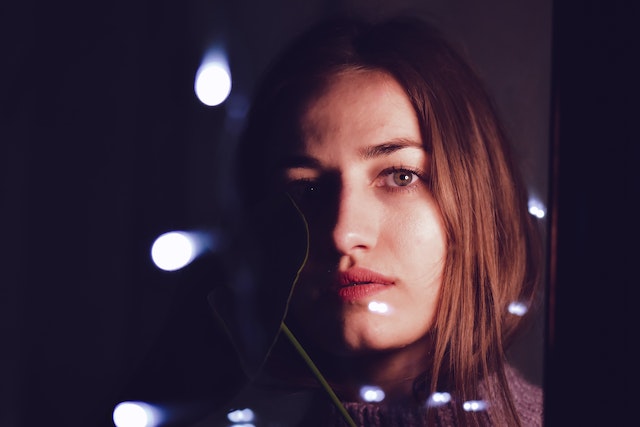Dark spots, also known as hyperpigmentation, are regions of skin that look darker than the surrounding skin due to an overabundance of melanin. Melanin is a natural pigment that gives the skin its colour and is produced by melanocyte cells.
Dark patches can form when melanin production is interrupted or enhanced. Sun exposure, hormonal fluctuations, ageing, skin inflammation, drugs, heredity, and other factors can all contribute to dark patches. While dark patches are normally harmless, they can be an eyesore for many individuals. It is critical to understand the causes of dark spots in order to avoid and cure them effectively.
Melanin and Dark Spots
Melanin is a naturally occurring pigment that determines the colour of our skin, hair, and eyes. Melanocytes, which are specialised cells found in the epidermis of the skin, create it. Melanin is essential in protecting the skin from the detrimental effects of UV radiation from the sun.
Melanin functions as a natural sunscreen in the skin by absorbing UV light and converting it to heat. This mechanism aids in preventing UV radiation from accessing deeper layers of the skin, where it can cause DNA and other cellular structures to be damaged.
When melanin production is disturbed or enhanced, it can lead to the appearance of dark spots or hyperpigmentation. Sun exposure, hormonal changes, ageing, skin inflammation, drugs, heredity, and other factors can all contribute to this.


Sun Exposure & Dark Spots
Sun exposure is a major cause of skin dark patches. UV radiation from the sun destroys melanin-producing cells, face serum for dark spots or hyperpigmentation.
UV rays damage skin in several ways. They increase melanin production, causing dark patches. Inflammation can cause redness, edema, and other skin problems. UV rays destroy skin cell DNA, raising skin cancer risk.
UV rays damage skin in several ways. They increase melanin production, causing dark patches. Inflammation can cause redness, edema, and other skin problems. UV rays destroy skin cell DNA, raising skin cancer risk.
It is critical to take care when spending time outside to avoid the creation of dark spots produced by sun exposure. Wearing protective clothes such as long sleeves, hats, and sunglasses is recommended, as is using broad-spectrum sunscreen with an SPF of at least 30. It’s also a good idea to avoid going outside during peak solar hours, which are usually between 10 a.m. and 4 p.m.
Other Contributing Factors
Skin discoloration can also be caused by a variety of other things.
- Injuries, acne breakouts, and other inflammatory skin problems can all lead to a kind of hyperpigmentation known as post-inflammatory hyperpigmentation (PIH). An excess of melanin produced by the skin as a defence mechanism against inflammation causes PIH.
- Any type of injury to the skin, including but not limited to cuts, burns, or insect bites, can result in the development of dark patches while the skin heals.
- Smoking can cause skin damage and increase melanin synthesis, which can contribute to the development of dark patches.
- Pollution and other environmental contaminants can cause skin damage and increase melanin production, leading to the appearance of dark patches.
- In some cases, vitamin serum for face deficiencies, such as vitamin B12 and vitamin D, may increase melanin synthesis and cause black spots on the face.
- Individuals with darker skin tones are more susceptible to getting black spots since their skin naturally contains more melanin.
For successful prevention and treatment, it is crucial to comprehend the numerous elements that can lead to the creation of dark spots. In addition to sun protection and minimising exposure to other environmental contaminants, a healthy diet, and lifestyle can promote healthy, beautiful skin.
Prevention and Treatment
Dark spots on the skin can be prevented and treated through a mix of lifestyle changes, topical treatments, and medical procedures.
Prevention:
- Protecting your skin from the sun’s harmful UV rays is important if you want to avoid getting dark spots. This means wearing protective clothing, using a sunscreen with a broad-spectrum SPF of at least 30, and staying out of the sun during peak hours.
- Healthy diet: Eating a healthy diet full of antioxidants can protect the skin from damage and help skin cells turn over in a healthy way. Especially good for you are foods that are high in vitamin C, vitamin E, and beta-carotene.
- Stress management: Long-term stress can cause the body to make more melanin, which can make dark spots on the skin. Dark spots can be prevented by doing things that help you relax, like yoga, meditation, or deep breathing.
Treatment:
- Dark spot treatments include hydroquinone, retinoids, vitamin C, and niacinamide. Inhibiting melanin formation and supporting healthy skin cell turnover reduces dark patches.
- Chemical peels: Applying a chemical solution to the skin removes the top layer of damaged skin cells and promotes new skin cell development. This can improve skin texture and minimise dark patches.
- Laser therapy: A specialised laser targets and breaks up dark spot pigment, which the body’s natural healing processes absorb. This can treat obstinate dark stains.
prevention is always preferable to cure. Preventing dark spots from ever appearing requires both sun protection and a generally healthy lifestyle. The best course of action if you notice black spots on your skin is to schedule an appointment with a dermatologist to discuss your options and find a regimen that works for you.


